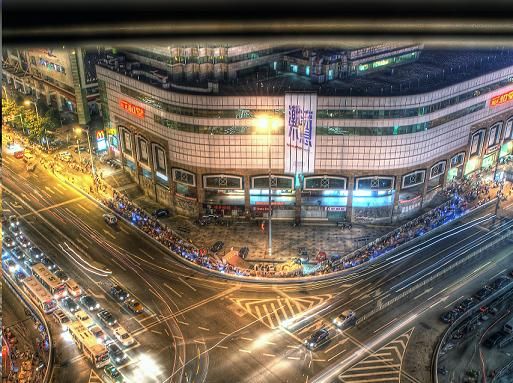$520m World Bank loan for climate-smart agriculture and urban transport in China
Loans will develop climate-resilient sustainable agriculture, control of agricultural pollution, and improvement of the quality of life for rural and urban residents through provision of rural infrastructure and urban transport systems.

The World Bank Board of Executive Directors have approved four loans totaling US$520 million to the People's Republic of China to support development of climate-resilient sustainable agriculture, control of agricultural pollution, and improvement of the quality of life for rural and urban residents through provision of rural infrastructure and urban transport systems.
"This group of projects typifies the current World Bank Country Partnership Strategy's focus on the themes of green growth, more inclusive development, and advancing south-south knowledge exchange. Each of the projects has elements of the first two themes, both in rural and urban areas, and south-south knowledge exchange is a key element in the agricultural pollution and urban transport focused projects," said Mark Lundell, World Bank Sector Manager for the Sustainable Development Department for China and Mongolia.
The Integrated Modern Agriculture Development Project, which received an IBRD loan of US$200 million, will help develop sustainable and climate resilient agricultural production systems in selected areas of Gansu, Hunan, Jiangxi and Liaoning provinces, Xinjiang Uygur Autonomous region, and Chonqging municipality.
The project will finance investments aimed at improving the irrigation and drainage infrastructure, such as cleaning of irrigation canals and drainage channels, canal lining, construction and rehabilitation of canal structure, pumping stations, and small water storage facilities. Support will be provided to develop more efficient irrigation systems including low pressure pipeline water delivery systems, sprinkler, micro, and drip irrigation systems. Water monitoring, measurement and management systems will be put in place.
Climate-smart agricultural practices and techniques will be promoted to help improve the productivity of irrigated agriculture, increase farmers' incomes, and reduce their vulnerability to adverse climatic events. About 380,000 rural households are expected to directly benefit from the project.
The Guangdong Agricultural Pollution Control Project, which received an IBRD loan of US$100 million, will support the province's efforts to control pollution from crop and livestock production by improving soil nutrient and pests management and reducing fertilizer and pesticide use, and by improving livestock waste management through sub-grants to livestock farms to partially finance construction of livestock waste collection and disposal facilities.
The project also received a US$5.10 million grant from the Global Environment Facility (GEF) for conservation agriculture pilots that will demonstrate the use of no-till or limited tillage technologies and practices for typical cropping systems. Farmers, farmer cooperatives, and livestock production companies will benefit from adoption of project promoted crop production or livestock waste management practices and technologies. All these approaches are intended to reduce land-based pollution to the coastal and estuary ecosystems of the South China Sea.
The Yellow Mountain New Countryside Demonstration Project, which received an IBRD loan of US$100 million, will support efforts to improve the quality of life for rural residents in Huangshan municipality. Huangshan in Anhui Province is well known for its beautiful natural landscape and Huizhou-style architecture, and boasts two UNESCO World Heritage sites. The project will finance construction or upgrading of rural infrastructure including roads, piped water supply, sewer networks and treatment facilities, flood prevention and irrigation and drainage works.
At the same time, support will be provided to the restoration, preservation and protection of historic buildings as part of Huangshan's cultural heritage conservation program. Through these activities combined with expanded production of high-value agricultural products and tourism, the project aims to generate employment opportunities and raise incomes for 145,000 residents living in 68 rural villages in Huangshan area.
The Qinghai Xining Urban Transport Project, whichreceived a loan of US$120 million, aims to enable residents in Xining, capital of Qinghai Province, to travel between the city center and the western part of the city in a fast, efficient and safe manner. The project will focus on Wusixi Road, a major transport and urban development corridor, and demonstrate integrated improvements to public transport infrastructure and services, road safety management, and traffic management through an integrated corridor management approach.
The funding will finance construction of three road sections as well as public transport infrastructure, operations and complementary facilities on the proposed integrated public transport corridor such as dedicated bus lanes, safe and accessible bus stops and terminals, pedestrian crossing and paths, a new bus dispatching system, and a public transport interchange. The project will also support development of an intelligent traffic management system.



